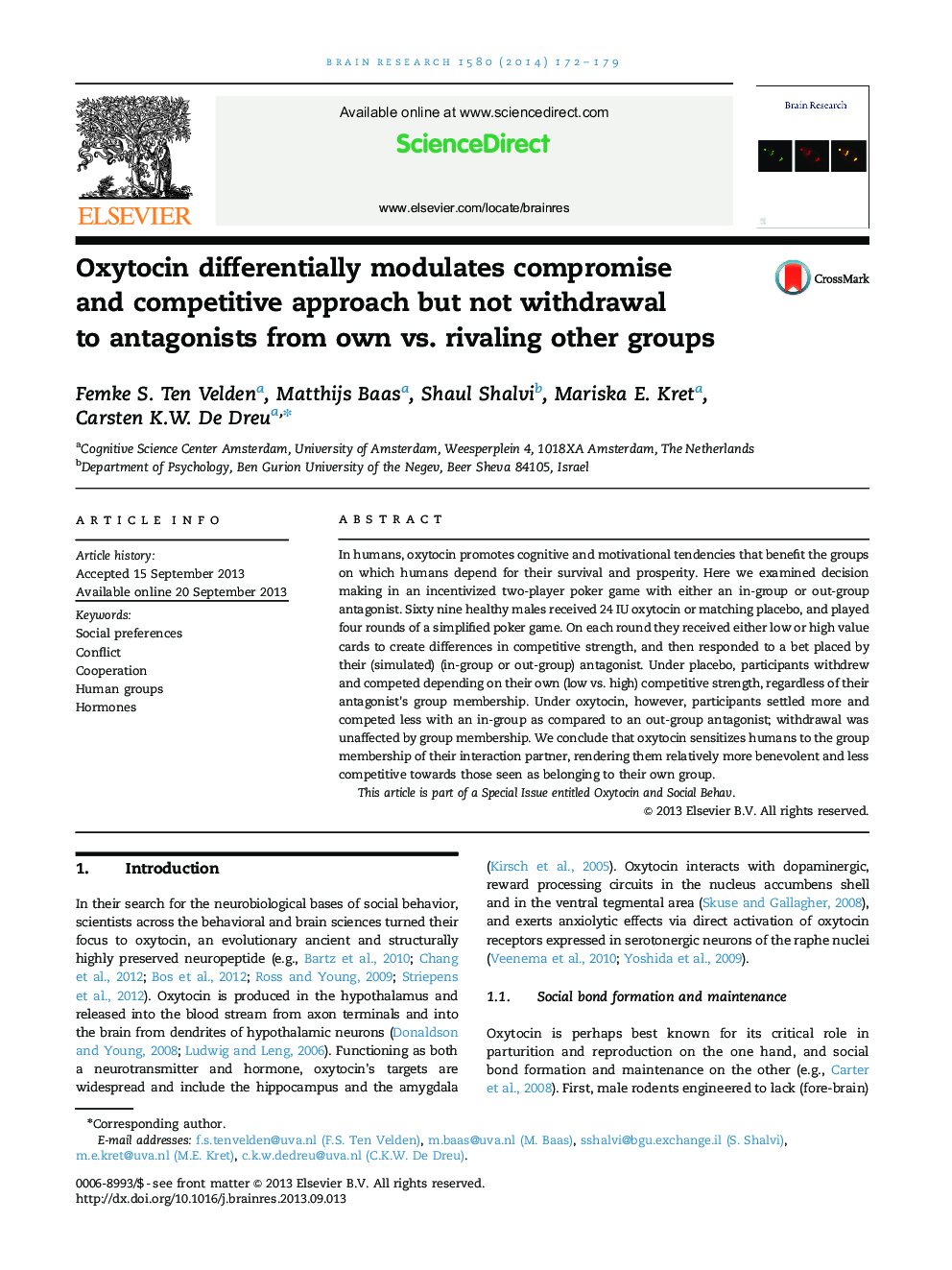| کد مقاله | کد نشریه | سال انتشار | مقاله انگلیسی | نسخه تمام متن |
|---|---|---|---|---|
| 4324130 | 1613859 | 2014 | 8 صفحه PDF | دانلود رایگان |
• Oxytocin in humans promotes group-serving tendencies.
• In a simplified two-person poker game, oxytocin promotes settlement and reduces aggressive approach of in-group antagonists, but not of out-group protagonists.
• Competitive strength in the poker game did not modulate effects of oxytocin on strategic decision making.
• Oxytocin had no effect on preferences for withdrawal from the competition.
In humans, oxytocin promotes cognitive and motivational tendencies that benefit the groups on which humans depend for their survival and prosperity. Here we examined decision making in an incentivized two-player poker game with either an in-group or out-group antagonist. Sixty nine healthy males received 24 IU oxytocin or matching placebo, and played four rounds of a simplified poker game. On each round they received either low or high value cards to create differences in competitive strength, and then responded to a bet placed by their (simulated) (in-group or out-group) antagonist. Under placebo, participants withdrew and competed depending on their own (low vs. high) competitive strength, regardless of their antagonist's group membership. Under oxytocin, however, participants settled more and competed less with an in-group as compared to an out-group antagonist; withdrawal was unaffected by group membership. We conclude that oxytocin sensitizes humans to the group membership of their interaction partner, rendering them relatively more benevolent and less competitive towards those seen as belonging to their own group.This article is part of a Special Issue entitled Oxytocin and Social Behav.
Journal: Brain Research - Volume 1580, 11 September 2014, Pages 172–179
